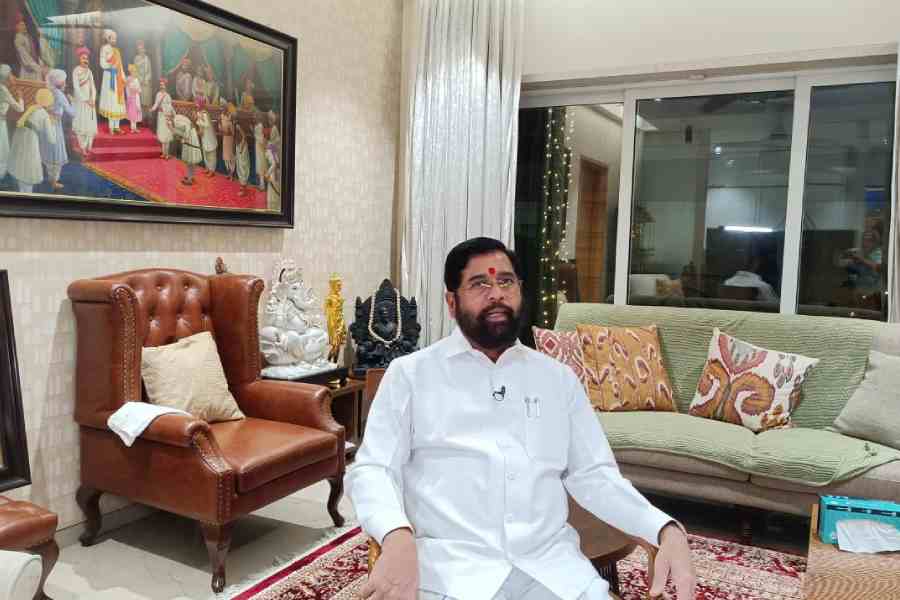'I know why I feel depressed, but I cannot tell you.” About five minutes into our first meeting, Nayanika very confidently established the boundaries which I should not trespass in our discussions. She was a young mother, working in a PR firm, stuck in an estranged marriage and she was depressed. This was as much she was willing to share at the outset. She wanted to feel better and, hence, decided to pay me a visit on the recommendation of a friend.
So, there I was, in a room with a woman who knew why she was depressed, but was unwilling to share the reasons and yet wanted me to make her feel better. Surprising as it may sound, this conundrum is not uncommon in psychiatric practice. Our training has taught us to be patient and non-confrontational. It would have been absolutely futile and counter-productive to retort that if she couldn’t tell me the cause, how am I expected to help her? So I let it pass, not expressing any curiosity or dismay. I knew that, in all likelihood, she would inevitably refer to the “cause” of her depression further in the session.
Words can heal and hurt
Words are important in therapy for they give voice to previously unknown thoughts and feelings. But as psychotherapist Susie Orbach wrote, words can reveal but they can obscure too. Hence, it is important to gauge the feeling of the person in the room, whether s/he is trying to obscure or reveal thoughts. I felt Nayanika wanted me to be curious about what she was not revealing.
Within the next 15 minutes, Nayanika again stated that she knew why she was depressed, but she would not be able to share details. This time, I probed a bit further as I assumed the implied expectation was that I should ask. I did not ask what was the cause but I asked what would happen if I knew the cause.
“You would judge me,” was her reply. Being negatively evaluated by ourselves and by others is one of the commonest reasons why people feel bad. Each of us has to negotiate a complex maze of personal and professional roles in our lifetime and they are often asynchronous. Can you be a fantastic lawyer but a terrible friend? Can you be a loyal friend to many and yet be a corrupt police officer? The societal “norms” and expectations impinge and affect how we view ourselves. Will you be a bad son if you told your mother — who has plans for your marriage with her friend’s daughter — that you are gay?
Nayanika’s guilt and what she perceived as the cause of her depression lay in her fear of being judged as “immoral” and “weak”. Immoral as she was in an extramarital relationship, which too was rocky. “Weak” because she could not leave her abusive and exploitative boyfriend. Nayanika was locked in a loveless and stultifying marriage. She felt she could reform her boyfriend and change the course of her relationship to a more fulfilling one. She was being advised by her close friends to get out of this relationship, yet she couldn’t. She perceived this as being “weak”.
My job was to feel and understand how Nayanika understands and frames her dilemma in her mind. That has to be the starting place. Mental health professionals can be of value only if our first port of call is to listen and to gradually and metaphorically feel ourselves in the shoes of the other. This is irrespective of the nature of the issue being discussed and the gender of the patient or the professional, although one needs to be mindful of both. We need to absorb the feelings that are being conveyed and to think and then to say some words which hopefully will facilitate recovery. Nayanika had come to me seeking help, hoping my expertise as a professional will enable her to negotiate this moral dilemma and thereby overcome her depression.
So she was the seeker and I was the healer. There is an inherent power imbalance in this relationship. All of us, those who are in any helping profession, have to be mindful of this dynamic. My words can help her to heal, but also it can make her feel worse. This is a burden which all therapists carry. Do no harm is the first principle of any treatment and conversations between a therapist and a client have the potential to cause immense harm.
There are many realities, not one
The potential damaging effects of counselling or therapy hardly gets spoken about outside academia, but personal experience and research shows it is a reality.
In situations such as this, where a moral value is on the table, the professional’s role gets even more complex. Therapists’ personal belief system may be at odds with what the person is doing. What then? Do I approve of extramarital relationships in my head? Do I think being gay is an aberration? Do I think that hitting children occasionally for their behaviour is permissible? Among the most important tools in the armamentarium of a therapist are words. These words and conversations, however, are a lot different from that we have outside the consulting room, that is, at a dinner table. Personal likes, dislikes, belief systems, knowledge all coalesce during a conversation between a therapist and his/her client, but the foremost guiding principle which the therapist has to be mindful of is the first law of medicine — do no harm.
The differential in power is so huge (between a therapist and a client) that the lure of imposing our own thoughts and beliefs in the client’s mind is a constant temptation.
Even if I do not believe that being gay is an aberration, I cannot scorn at the mother who has come seeking help for her son, who has declared he is gay. Our role is to listen, understand the feelings and enable the person to seek his or her truth and reconcile as best as s/he can with that reality. The therapist’s job is to co-construct the reality with the person, not impose the reality as we interpret it. There are many realities and not one, as there are ‘Three Hundred Ramayanas’ (borrowing the title of an essay by A.K. Ramanujan) or maybe 3,000. This sounds complex and, in reality, it is. But that maze is traversed by many therapists every day. Training, supervision and self-reflection of therapists are guards against hurting Nayanikas from being further scarred by our words. It is a difficult job, but immensely gratifying if done well.
Dr Jai Ranjan Ram is a senior consultant psychiatrist and co-founder of Mental Health Foundation (www.mhfkolkata.com). Find him on Facebook @Jai R Ram










